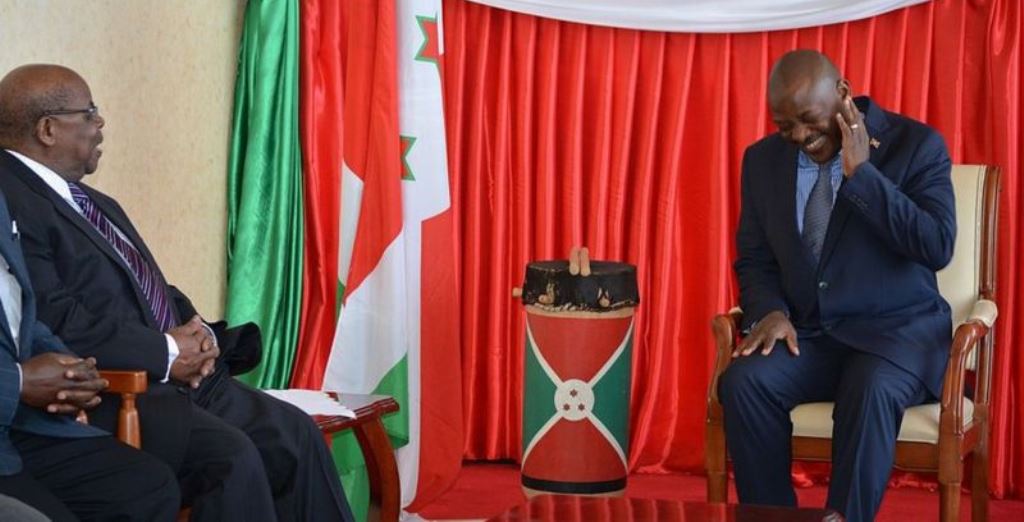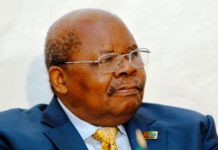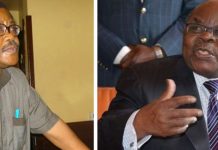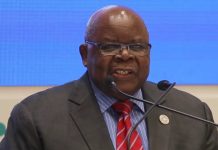Author: DEUS NGOWI
AfricaPress-Tanzania: THE nation is most grief-stricken following the death of former President Benjamin Mkapa on Friday.
The top diplomat, who was born in 1938, passed on at a Dar es Salaam hospital, where he was being treated and the news was broken by President John Magufuli at 0025hrs, calling upon Tanzanians to remain calm and united.
A State statement explained that the country would observe a seven-day mourning period during which all flags would be flown at half-mast. A vividly sad President John Magufuli announced via a live television broadcast: “With great sadness, we are bereaved…our elder… Benjamin Mkapa, the third phase President has passed on. He passed on at a Dar es Salaam hospital, where he was admitted for treatment. I ask Tanzanians to accept the situation; It is a great heartbreak…let us continue praying for our leader who has gone before us for justice. Other information will be divulged in due course, but Mzee Mkapa is no more.”
Leaders and other people in mourning mood filed into his Masaki residence in Dar es Salaam.
Messages of condolences have been pouring in from within and outside the country via different means, including the social media, mourning the passing on of the man, who led the country successfully from 1995 to 2005. He is credited to establishment of policies that led the nation through a period of sweeping global change.
His policies won the support of the World Bank and International Monetary Fund (IMF) and resulted in the cancellation of some of Tanzania’s foreign debts.
Mr Mkapa (81), served as an ambassador, minister, journalist and chairman of the ruling Chama Cha Mapinduzi (CCM).
He worked for the ‘Daily News’ and the ‘Sunday News’ in 1972 and in 1974 he was appointed Press Secretary of President Julius Nyerere, while in July 1976, he was the founding director of the Tanzania News Agency (Shihata).
President Mkapa led several regional peace mediation efforts, while in office and after his retirement, notably the Burundi and Kenya ones that were initiated after respective elections.
In Kenya, he made possible a signing of a powersharing pact between the then President Mwai Kibaki and Orange Democratic Movement (ODM), leader Raila Odinga in February 2008.
The post-election violence that erupted in Kenya in December 2007 resulted in deaths of over 1,000 people and left about 300,000 displaced.
While catastrophic, the scale of the social and economic destruction, not to mention the loss of life, could have been much greater were it not for the peace mediation mandated by the African Union through a Panel of Eminent African Personalities, Mr Mkapa being one of them.
In his memoir, ‘My Life, My Purpose’ released last year, the late Mr Mkapa recounted days and nights of the race he went through to save Kenya, recalling how difficult it was to deal with the then Justice Minister William Ruto (now Deputy President) and Ms Martha Karua, ultimately ending up locking them out.
The late Mr Mkapa said the atmosphere changed after the panel was able to get Mr Kibaki and Mr Odinga alone together, saying that the Kenyan experience was his toughest mediation experience out of the country.
Other mediation initiatives were in Democratic Republic of Congo and South Sudan.
On the Burundi crisis, the United Nations (UN), the African Union (AU) and the East African Community (EAC) in 2017 gave their support to the late Mr Mkapa as a facilitator and reaffirmed their full support to his efforts.
Apart from talks that were being held in Arusha, the late Mr Mkapa, in implementing a roadmap for the Burundi Dialogue Process that was developed by the EAC Summit visited Burundi and conferred with its President, the late Pierre Nkurunziza and consulted other significant political players.
That laid foundation for a series of both formal and informal engagements with and among various stakeholders, in and outside Burundi and with international actors.
The Burundi opposition group-National Council for the Restoration of the Arusha Accord (CNARED), expressed its satisfaction of the appointment and consequent work done by the late Mr Mkapa who they said bred new life into the talks and finally peace resurfaced in the East African nation.
Mr Pancras Cimpaye, spokesperson for CNARED had this to say on President Mkapa: “Former President Mkapa knows very well the issues of the Arusha Peace Agreement, and we know that he does his best so that implementation is a reality. We saw the statement of the AU…so former president Mkapa is there to help.”
The French government paid tribute to the determination and commitment of Facilitator Mkapa for finding a political solution to the Burundian crisis in accordance with the Arusha Agreement.
Late last year, the late Mr Mkapa reiterated that dialogue remains the only way to end hostilities.
“I still believe that dialogue continues to be the only genuine and sustainable way that could enable Burundian stakeholders to find a way out of the situation… the Summit (EAC’s) at that level may demonstrate collective leadership, unity of purpose and coherence to prevent the resurgence of violence in Burundi.
“Clearly my appeal for cessation of hostilities seems to have been heeded to by all parties…regional leaders should redouble their efforts to ensure stability is restored in Burundi while preserving the gains of the historic Arusha Peace and Reconciliation Agreement for Burundi,” it is what he recommended in his last report on the Burundi crisis.
Through its Twitter account, the EAC Secretariat had this to say of demise of the former president: “Our thoughts and prayers are with family and friends of His Excellency Benjamin William Mkapa, as well as the people of Tanzania at this time. We wish you all strength and fortitude to face this loss. RIP Mkapa.”
He was born in Masasi, Mtwara on 12 November 1938 and in 1962 attained a Bachelor of Arts Degree in English from Makerere University College in Uganda.
he was then recruited for External Service and four years later he specialised in journalism as the editor of The Nationalist and Uhuru newspapers.







